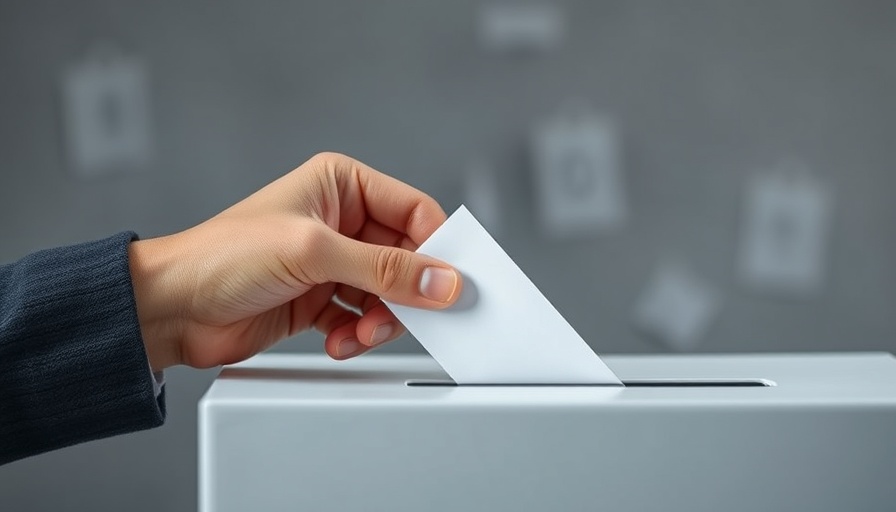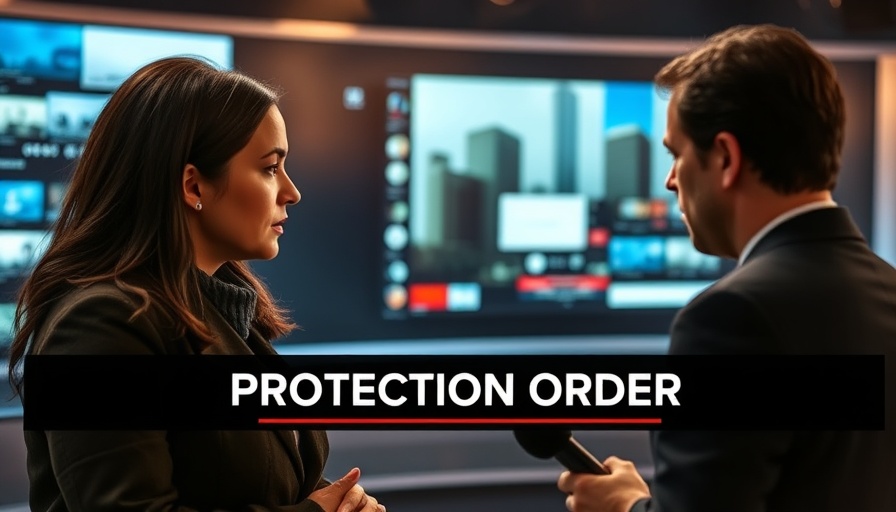
Understanding Trump's Executive Order on Mail-In Voting
The debate over President Trump’s attempts to eliminate mail-in voting has reignited discussions about electoral integrity and states’ rights. In a recent interview, Michigan Secretary of State Jocelyn Benson clarified the limitations of presidential powers regarding elections, emphasizing how the U.S. Constitution assigns election authority to the states. This critical distinction between federal interests and state governance highlights not only the executive branch's role but also the importance of citizen participation in shaping voter laws.
In 'Michigan Secretary of State reacts to Trump’s push to eliminate mail-in ballots', the discussion delves into voting rights and electoral integrity, prompting us to analyze the broader implications for Michigan voters.
The Constitutional Reality of Mail-In Voting
While Trump’s assertive rhetoric claims mail-in voting as corrupt, Secretary Benson pointed out that the law does not grant the President the ability to unilaterally dictate voting methods. The Constitution mandates that each state manages its election processes. Many states, including Michigan, have embraced mail-in voting as a secure and accessible option for millions of voters. This includes those unable to vote in person due to military obligations, advanced age, or health issues.
Perspectives on Voter Access and Security
Critics of mail-in ballots often focus on potential fraud, yet Benson and numerous studies assert there is no evidence of widespread voter fraud in the U.S. Moreover, the Heritage Foundation found that only 8 out of 100,000 votes have been linked to fraud over a quarter-century. The debate continues to underscore that voter access and voting integrity are interconnected challenges, with many in Michigan advocating for the right to vote by mail.
The States’ Role in Election Management
Secretary Benson reignited the conversation regarding how Trump’s push toward mail-in voting elimination may conflict with the will of the people. In 2018, Michigan voters overwhelmingly voted to amend the state constitution to secure the right to vote by mail, illustrating a clear narrative: the citizens, not federal leadership, are the key players in deciding how elections operate. Thus, any federal interference disrupts the balance of power designed by the Constitution.
Global Perspectives on Voting Methods
The debate extends beyond the U.S. borders, as various countries have adopted voting methods that suit their political climates. While France has moved against mail-in voting due to integrity concerns, nations like Canada, Germany, and the United Kingdom still utilize it, emphasizing that successful mail-in systems exist worldwide. This global lens underscores the fact that different democratic systems can find solutions that work in their respective contexts.
Political Implications of Mail-In Voting Discourse
The discourse surrounding these changes is deeply political. Trump, having encouraged mail-in voting previously, now seems to view it differently in light of shifting political tides. There’s a palpable concern among Republicans that an increase in mail-in voting will favor Democratic candidates, which may be driving this renewed focus on eliminating mail-in ballots. These discussions reflect an ongoing struggle for power in the electoral process, fostering division rather than unity.
Looking Ahead: Future of Voting in Michigan
As Michigan navigates its path toward the 2026 elections, residents are urged to remain informed and engaged with local governance. The ability to vote by mail enhances participation and ensures that every voice is heard in the electoral process, transcending partisan divisions. The upcoming election will undoubtedly present an opportunity for voters to reaffirm their stance on mail-in voting, as Secretary Benson asserts a commitment to protecting voter choice.
Given the critical nature of this discussion and its implications for democracy, we encourage readers to stay informed through local news outlets and participate actively in electoral processes that shape their communities.
 Add Row
Add Row  Add
Add 



Write A Comment